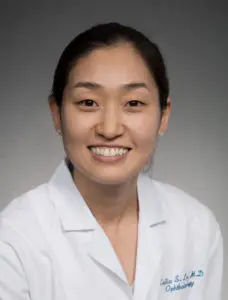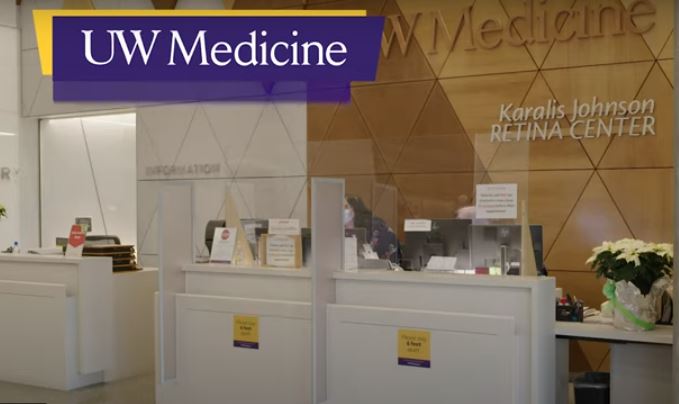A study by UW Medicine researchers found that subjects who underwent cataract surgery had a nearly 30% lower risk of developing dementia from any cause compared with those who did not have cataract surgery — and that the lowered risk persisted for at least a decade afterward.

Cecilia Lee, MD
Cecilia Lee, MD, MS, associate professor and Klorfine Family Endowed Chair in Ophthalmology at the University of Washington School of Medicine, is the lead researcher of the observational study of more than 5,000 participants older than 65. Read more about the findings in the UW Medicine Newsroom, The Seattle Times or The New York Times.
This is the latest finding coming from the Computational Ophthalmology Program at UW Medicine’s Karalis Johnson Retina Center, led by Dr. Lee and Aaron Lee, MD, MSCI, associate professor and C. Dan and Irene Hunter Endowed Professor in Ophthalmology.
The program’s researchers are using big data — extremely large data sets that can be analyzed with powerful supercomputers — to better understand, diagnose and treat eye diseases. The team was the first to discover at the clinical level a link between eye disease and Alzheimer’s disease.
This predictive link between eye disease and the brain was highlighted by Bill Gates on his GatesNotes blog as one reason he’s optimistic about the future of Alzheimer’s research.
Groundbreaking discoveries in vision science, like those from the Computational Ophthalmology Program, are made possible thanks to donors like Angie Karalis Johnson, whose generous investment launched the Roger H. and Angie Karalis Johnson Retina Center at UW Medicine in 2019.
Karalis Johnson’s transformative gift ensures these research discoveries will directly help patients suffering from blinding eye disease. Her support has given scientists like the Drs. Lee the freedom to pursue initiatives in research and care related to the cure of macular degeneration and the treatment of other retinal diseases.

